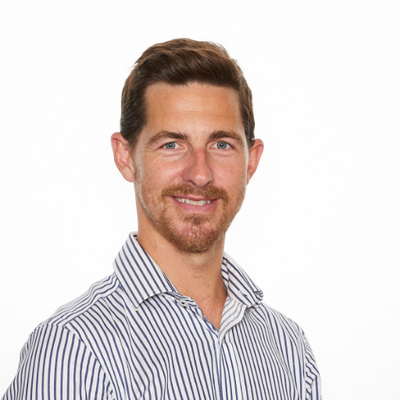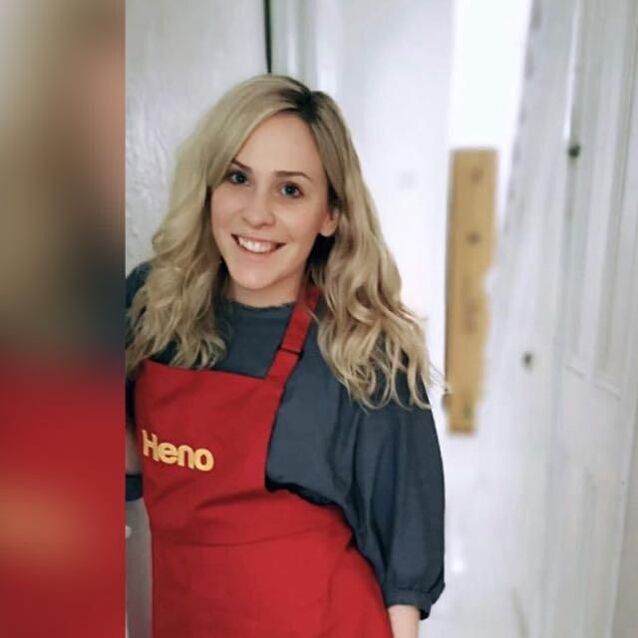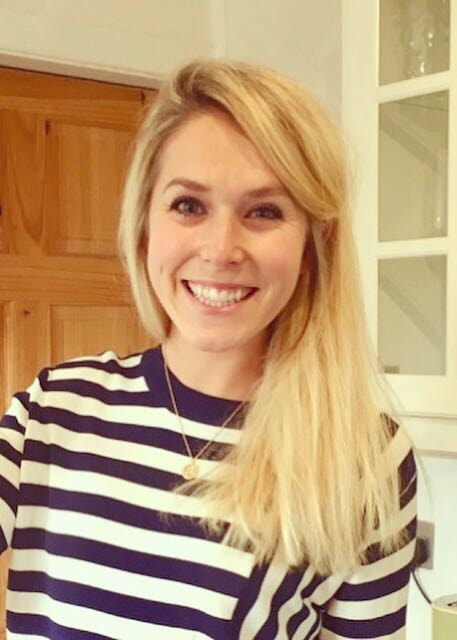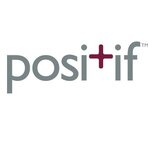|
Dr Tom Cromarty Editor Interests: Paediatric Emergency Medicine, Medical Engagement and Leadership, Simulation, Quality Improvement, Research Twitter: @Tomcromarty |
Welsh Research and Education Network
WREN BlogHot topics in research and medical education, in Wales and beyond
Dr Celyn Kenny Editor Interests: Neonates, Neurodevelopment, Sepsis, Media and Broadcasting Twitter: @Celynkenny |
|
Dr Siwan Lloyd ST5 Action for children Family Intervention Team: supporting children in the community I am coming to the end of my community paediatric placement and have learnt a huge amount about the way that vulnerable children and families are supported in the community. Whilst sitting in on MDT referral meetings, I realised that I previously had very little understanding of the huge team of allied professionals, charities and agencies offering support out in the community. I therefore made it a PDP to increase my understanding and awareness of the way that the wider community supports children. I was over the moon to be invited to an Action for Children Family Intervention Team (FIT) team meeting. The team had a psychologist and family intervention workers who all had their own caseload. The team discussed their active case-load and I was really inspired to hear about the support that they provide for children living in very difficult circumstances (e.g. living with parental mental health disorders, acrimonious parental separation, children struggling with issues surrounding gender identity, children presenting with behavioural challenges, children displaying sexualised behaviour, children living in households with domestic violence, children displaying anger and aggression etc.). The team usually perform an initial assessment and then work with a family for 12 weeks. Many of the children had received support from their Wellbeing project (a project funded by Caerphilly families first and run by Action for Children) which supports families suffering from low motivation or low mood, anxiety, depression, social isolation or traumatic life experiences. The aim is to build resilience, improve emotional wellbeing and support for families to feel more positive and confident. The process is provided by a family support practitioner delivering engagement sessions followed by either group sessions or individual support. They work on confidence building, self-esteem, regulating emotions and feelings and preventing social isolation. I was particularly impressed by the way the team discussed a safeguarding issue of a family who would not engage with any other service (e.g. paediatrician, social services) and who were withdrawing and becoming socially isolated but this family had built a trusting relationship with their action for children family intervention team case worker. The team discussed the way in which this was so important in maintaining this relationship and slowly getting the family and child to trust professionals. I was also impressed by the way the team highlighted each child’s wellbeing as their utmost priority but always discussed this in the context of the wider family. There have been many times in community paediatrics when I have seen a child presenting with behavioural difficulties when it is evident that the family environment is affecting them. This team is able to provide support to the wider family and by doing so improve the life and mental health of the young person which is an invaluable resource. Action for children can arrange Family Therapy which can work on issues such as building consistent parenting. I learnt about some of the psychological techniques that can be used to support parenting for example PACE – “playful acceptance, curious and empathetic” a form of parental psychotherapy developed by Daniel Hughes that can be undertaken in groups or 1:1 and works to support forming secure attachment and encourages parents to give children vocabulary for discussing emotions. There was also discussion about ACT “acceptance and commitment therapy” which can be offered to parents struggling with difficult circumstances to allow them to accept these things that they have no control over. There was also discussion surrounding teaching and supporting parents to use NVR (non-violent resistance) as a technique to manage difficult and aggressive behaviours. I was embarrassed to admit that I had no idea how many sources of support there are for families that Action for Children can signpost and refer to (for example “Confident with Cash” is a resource led by families first and the citizen’s advice bureau that can give advice on benefit entitlements, consolidating debt and managing household budgets to families that are struggling, TYFE (targeted youth and family engagement) is a group led by families first that take children out to participate in group activities aiming to build their social skills, confidence and self-esteem). The team also discussed referrals on to other agencies as sources of support including Llamau (e.g. “domestic abuse children and young people outreach”), Caerphilly Council’s Youth Respect programme (a Supporting Family Change project for young people who show early indications or abusive, aggressive and controlling behaviours), NYAS (National Youth Advocacy Service – a confidential independent service that supports children and young people by helping them to be heard and exploring their views, wishes or feelings on a particular issue or circumstance), Barnados (e.g. “confident parents, stronger families” – aims to assist development of parenting skills and increase parental capacity offering support with things such as routines and managing behaviour). This team works with families who are reaching crisis point and struggling to cope and I firmly believe that the vital support that they offer is likely to reduce child neglect, child emotional and physical abuse and supports the child’s overall wellbeing. It was truly inspirational to see the way that they provide support for these families (and I was so inspired I was briefly tempted to change careers in order to become one of them!). Learning points:
For more information about the work that Action for Children undertake see - https://www.actionforchildren.org.uk/. I would be very happy to share contact details with any trainee who is also interested in using some Study Days to attend an Action for Children Team meeting. Other resources: https://www.barnardos.org.uk/ https://www.llamau.org.uk/ https://www.nyas.net/
0 Comments
Dr Ciara Duggan ST4 The Professional Support Unit (PSU) was created in 2008 and aims to provide support to all doctors and dentists in training in Wales. At the recent deanery study day we had a workshop from the PSU to let us know what services are available to support us throughout our paediatric training. They aim to support trainees early with confidential, targeted support they have a number of different resources and services available to them in order to do this.
Either trainees can self refer or supervisors can recommend referral to the PSU. Initially when the PSU was first set up they were primarily getting referrals from supervisors or following an undesirable ARCP outcome. However self referrals are increasing year on year as trainees have become more aware of the services available. The PSU also has a presence on ARCP panels in order to support trainees and also offer additional support to any trainees with an outcome 2 or 3. The PSU can provide an initial meeting where they explore the support needs and the best options for that trainee. They provide health support, discussion about career options, eportfolio/ARCP support and help with those struggling with exams. They have links to a counselling service which trainees will be able to access within 24 hours of referral and they will try and link trainees to services as close to home as possible. They try and identify trainees who need adjustments for health or disability in advance so that each job can be prepared prior to the trainee starting. I was interested to hear about the exam support which they can offer to trainees. They are seeing more and more trainees accessing their services for help surrounding passing postgraduate exams and the anxiety that these exams can cause. They can help with revision techniques and planning, dealing with the anxiety surrounding exams and dyslexia assessments where this is appropriate leading to extra time or support during exams. Part of the workshop highlighted the success of the PSU in helping trainees. They show an increase in exam passing rate after input, an increase in outcome 1 at ARCP and a high level of satisfaction from the trainees who have been supported. All in all the session highlighted this resource, made it sound accessible and useful and I think it ties in with the recent push from trainees talking about our own wellbeing in work. The link is below if any one would like to access the PSU you can call them or email. https://psu.walesdeanery.org The Wales Deanery recently organised a study day themed around health policy and practice in Wales, and our role as Paediatricians in influencing these policies. Below we have two separate accounts of the day, one from a trainee perspective, and the other from the Head of Monitoring at 'Positif' - Wales' largest public affairs company. Dr Lucy Deacon ST1 How much do you know about the structure of Welsh Government? Would you recognise a photo of our Health Minister? Why does it even matter? I have to be honest, I had no idea about any of these things before I went to regional teaching a few weeks ago. At the start of the afternoon session I didn’t know what to expect, mainly because I knew so little about the National Welsh politics. It was, however, one of the steepest and valuable learning curves for me in training this year- I am left feeling both educated and empowered as a Welsh citizen and member of the medical profession within Wales. Twenty one areas of government are devolved to Wales. Within those twenty one areas is Health and Social Services and together they receive half the budget given to Wales to spend. The Welsh Government really does care about Health. The training, delivered by positif, was engaging and relevant. We learnt about which departments are devolved to Welsh Government and who the big names are within the Welsh Assembly. Knowing this structure and then how policy decisions are proposed, debated and approved equips us as medics to be able to influence health policy within Wales. We learnt about choosing who to write to and how to start a national conversation about the issues that matter to us. Creating a conversation comes not only from research, and published articles and papers, but from making the relevant people, in power, aware of these findings, joining working groups, responding to national policy documents in consultation and identifying champions to join us in fighting for the change we want to see. And timing. Timing is important and very relevant to writing this piece because, now is the time to be writing to Assembly Members. The election cycle means now is the time to be making proposals, ahead of parties writing manifestos next year, this is the time to be raising our questions and lobbying the government to discuss them. Questions for the Health Minister can be oral or written and he answers questions every 4 weeks on Wednesday. Asking for more money is what everyone does but proposing solutions is what is listened too. We finished the afternoon planning and presenting our ‘Lift Lobbying’ pitches. Individuals came up with an issue they wanted to change, among them – rest facilities for junior doctors, what to do with the national report on Adverse Childhood Experiences, making CAMHS a 7 day a week service for children in crisis and having a drug and alcohol service for children in need of support. We were challenged to think ‘what is it you are actually trying to do?’ The room became impassioned as we worked on compressing the proposals into a 2 minute pitch you could give if you found yourself in a lift with Vaughan Gething. So, I left at the end of the day, having been involved in lively debate and feeling better informed about how health policy is formed within Wales. But more importantly I left feeling a sense of privilege and of responsibility as a doctor because now I knew how to get my voice heard on the issues that matter to me. It was clear from our pitches that as junior paediatric doctors we wanted better services for the children we care for and that we are uniquely positioned to identify the issues as they confront us in work on a daily basis. What we see every day is the health of our nation, and indeed our nation’s future, so safeguarding it is in the Welsh Government’s interests. There are routes to get our voices heard and knowing more about how policy decisions are proposed, empowers us as doctors to influence discussion and debate. Influencing PoliticiansRhodri ab Owen Head of Monitoring, 'Positif' A common misconception is that you need to be “in politics” in some way to have a political impact and influence. You do not. This was the biggest take away I wanted to give a group of paediatricians who came to a session at the Princess of Wales Hospital in Bridgend on how to influence politicians and key stakeholders.
Context is the key to successful political influencing. It is about talking to the right person, or an influencer on the right person, in the right way, about the right things, at the right time. Politicians in Wales are much closer to the people than in other parts of the UK, and it is far easier to influence and organise a meeting with Assembly Members, than other politicians across the UK. Most policy development and legislation have come from an individual or a group of individuals influencing politicians. For example, the system of presumed consent for organ donation came about after several years of campaigning from a cross section of interested organisations. Kidney Wales may have led the campaign, but it was actively supported by others with an interest in increasing organ donation rates such as the British Heart Foundation and the Cystic Fibrosis Trust. It also gathered support from the British Medical Association, which provided additional gravitas in making the case. While discussing allies as part of the context, it is also perhaps worth reflecting on who your opponents might be. You might not think you have opponents but every interest group chasing the same pound, or every organisation seeking attention to their policy asks, is potentially an opponent. Even those you might assume to be allies are not necessarily so – UK Transplant was one of the most lukewarm organisations in respect of a policy of presumed consent for organ donation in Wales. The legislation for presumed consent in Wales which reached the statute book in Wales in 2013 began six years earlier with the building of a coalition and an information gathering exercise. This helped establish the context of the campaign. Data and statistics were gathered, best practice examples were observed in other countries, and a bank of knowledge was created to ensure depth and consistency. From this firm foundation, not only was political action taken, but steps were taken to create and shape the context of a wider public discussion. This included becoming part of Welsh Government working groups, inputting into consultations, and publishing articles in newspapers. All of which elevated the issue and gave it clear context to support the campaign and its key asks. TOP TIP: Make sure you have spent a decent amount of time planning, evidence gathering and sounding out potential allies before you embark on any campaign, especially if it is impactful or high profile in nature. Getting things right from the outset can avoid problems and disappointments later down the line. |
Editors
Dr Annabel Greenwood Categories
All
|








 RSS Feed
RSS Feed
